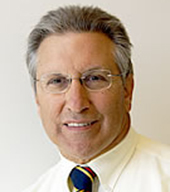Role of the Cardiologist in Treatment of T2D and CVD Risk Management
In a recent survey of people age 45 and older with T2D, conducted online by The Harris Poll, only half recognize their cardiovascular risk or have discussed their risk of heart attacks or strokes with their health care providers. Listen to Cardiologist, Dr. Tracy Wang and Endocrinologist, Dr. Robert Eckel discuss how a cardiologist can play a pivotal role in helping his/her patients with T2D better manage their CVD risk.

Episode 9 – Role of the Cardiologist in Treatment of T2D and CVD Risk Management
Tracy Y. Wang, MD is an Associate Professor of Medicine with tenure in cardiology at Duke University. An undergraduate of Yale University, she received her MD from Harvard Medical School and holds an MSc degree in molecular biochemistry/ biophysics from Yale and an MHS degree in clinical research from Duke University. She joined the faculty at Duke University in 2008. Dr. Wang chaired the AHA’s Quality of Care and Outcomes Research Council from 2017–2019, and serves on many task forces, committees and writing groups for the AHA, American College of Cardiology and American College of Physicians. She is an Associate Editor of the JAMA Internal Medicine journal. She is the Director of Health Services and Outcomes Research at the DCRI. She remains a practicing non-invasive cardiologist with both inpatient and outpatient responsibilities.

Robert Eckel, MD is a distinguished alumnus of the University of Cincinnati College of Medicine and currently the Charles A. Boettcher II Endowed Chair in Atherosclerosis, Professor of Medicine with appointments in the Division of Endocrinology, Metabolism and Diabetes, Division of Cardiology and Professor of Physiology and Biophysics at the University of Anschutz Medical Campus, and Director of the Lipid Clinic at the University of Colorado Hospital. He also was a member of the Scientific Advisory Council of the National Institute of Diabetes, Digestive and Kidney Diseases at the National Institutes of Health. In addition, he served as President of the North American Association for the Study of Obesity and then President of the AHA.






